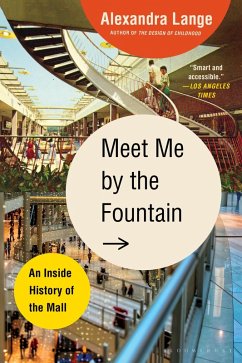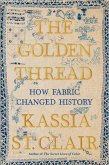Longlisted for the Porchlight Business Book Awards
"A smart and accessible cultural history."-Los Angeles Times
A portrait--by turns celebratory, skeptical, and surprisingly moving--of one of America's most iconic institutions, from an author who "might be the most influential design critic writing now" (LARB).
Few places have been as nostalgized, or as maligned, as malls. Since their birth in the 1950s, they have loomed large as temples of commerce, the agora of the suburbs. In their prime, they proved a powerful draw for creative thinkers such as Joan Didion, Ray Bradbury, and George Romero, who understood the mall's appeal as both critics and consumers. Yet today, amid the aftershocks of financial crises and a global pandemic, as well as the rise of online retail, the dystopian husk of an abandoned shopping center has become one of our era's defining images. Conventional wisdom holds that the mall is dead. But what was the mall, really? And have rumors of its demise been greatly exaggerated?
In her acclaimed The Design of Childhood, Alexandra Lange uncovered the histories of toys, classrooms, and playgrounds. She now turns her sharp eye to another subject we only think we know. She chronicles postwar architects' and merchants' invention of the mall, revealing how the design of these marketplaces played an integral role in their cultural ascent. In Lange's perceptive account, the mall becomes newly strange and rich with contradiction: Malls are environments of both freedom and exclusion--of consumerism, but also of community. Meet Me by the Fountain is a highly entertaining and evocative promenade through the mall's rise, fall, and ongoing reinvention, for readers of any generation.
"A smart and accessible cultural history."-Los Angeles Times
A portrait--by turns celebratory, skeptical, and surprisingly moving--of one of America's most iconic institutions, from an author who "might be the most influential design critic writing now" (LARB).
Few places have been as nostalgized, or as maligned, as malls. Since their birth in the 1950s, they have loomed large as temples of commerce, the agora of the suburbs. In their prime, they proved a powerful draw for creative thinkers such as Joan Didion, Ray Bradbury, and George Romero, who understood the mall's appeal as both critics and consumers. Yet today, amid the aftershocks of financial crises and a global pandemic, as well as the rise of online retail, the dystopian husk of an abandoned shopping center has become one of our era's defining images. Conventional wisdom holds that the mall is dead. But what was the mall, really? And have rumors of its demise been greatly exaggerated?
In her acclaimed The Design of Childhood, Alexandra Lange uncovered the histories of toys, classrooms, and playgrounds. She now turns her sharp eye to another subject we only think we know. She chronicles postwar architects' and merchants' invention of the mall, revealing how the design of these marketplaces played an integral role in their cultural ascent. In Lange's perceptive account, the mall becomes newly strange and rich with contradiction: Malls are environments of both freedom and exclusion--of consumerism, but also of community. Meet Me by the Fountain is a highly entertaining and evocative promenade through the mall's rise, fall, and ongoing reinvention, for readers of any generation.
A smart and accessible cultural history—outlining the social, economic and architectural forces that led to the creation of U.S. malls as we know them … Lange doesn't have a false nostalgia for malls. Meet Me by the Fountain is frank about how they have usurped public space. But at a time when malls still serve the function of bringing us together, Lange's book is a thoughtful guide to helping them do what the best of them already have—but better.









